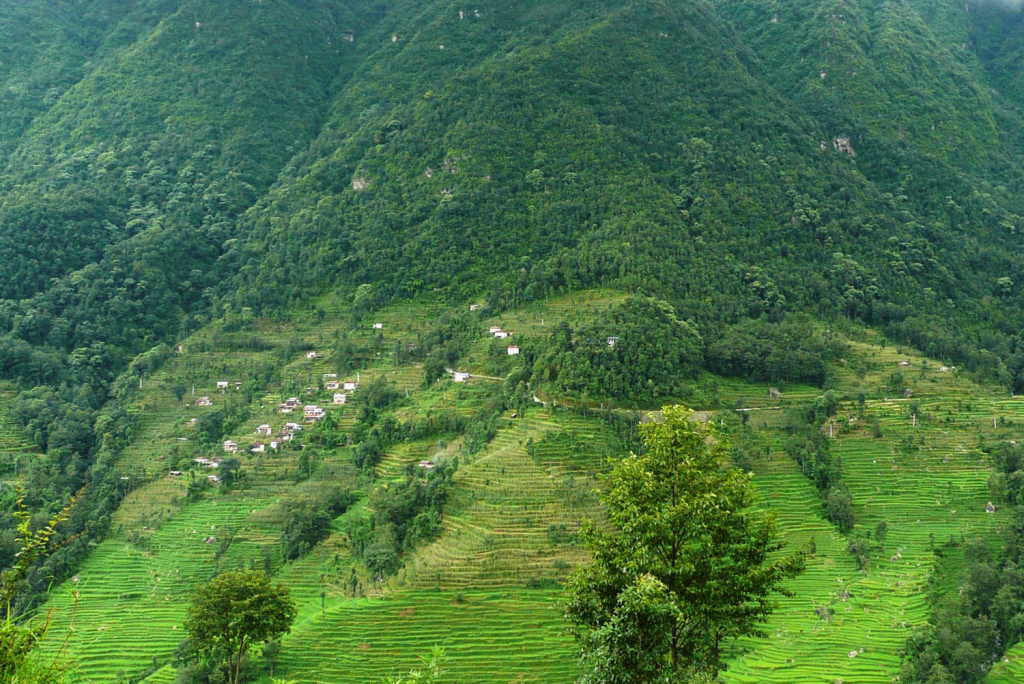How will the Sustainable Development Goals affect forests and people?
Since Agenda 2030 was launched in 2015, plenty of attention has been paid to the contributions which forests can make to its 17 Sustainable Development Goals (SDGs). However, relatively little attention has been given to the possible impacts which the SDGs will have on forests, forest ecosystems and people benefitting from forests, and how this might contribute to, or undermine, the role forests play in improving human well-being and protecting the environment.

A new bookhelps to fill this knowledge gap. Due to be published later this year, Sustainable Development Goals: Their Impact on Forests and People was developed by six editors and over 100 authors. It will provide important guidance to governments and others formulating policies and programmes aimed at achieving the SDG targets. At a sub-plenary and a technical session at the 2019 IUFRO Conference, authors will provide a summary of the main findings and conclusions of this book, which was developed by the IUFRO World Forests, Society and Environment (WFSE) project coordinated in Natural Resources Institute Finland (Luke).
This is a vitally important topic. We all depend on the ecosystem services forests provide. Forests contain 80% of all terrestrial biomass and are home to half the world’s known species. They provide wood and non-wood forest products and play a major role in regulating water, nutrients and carbon cycles. To successfully tackle climate change, forests must be a key part of the story.
Although efforts to advance one SDG can directly or indirectly contribute to the advancements of other targets, the opposite can also be true. Identifying interactions is an important step in implementing Agenda 2030 and the book explores ways that will help to enhance synergies between SDGs and reduce trade-offs.
Some SDGs pose a serious threat to forests and the people living in or near them. For example, SDG 8 (Decent work and economic growth) and SDG 9 (Industry, innovation and infrastructure) may encourage infrastructure development and other activities which lead to forest loss. The expansion of agricultural crops for food or energy (SDGs 1 and 7) are also likely to compete with forests in many locations. On the other hand, the implementation of several SDGs will be good for both forests and people. For example, SDG 13 (Climate Action) should lead to better forest management, as well as forest restoration. And better water management and sanitation (SDG 6) should benefit both forests and human health. Improved resource efficiency, sustainable production and new technologies (SDG 12) and increased agricultural productivity (SDG 2) can also reduce pressures on forests.
One of the key findings of the book – this will be the subject of one of the presentations at the sub-plenary – is that context matters. SDGs may be prioritised differently, and have a very different impact, from one place to another. A wide range of factors will influence how SDG activities are implemented, and this is one reason why it is important to involve local people in their planning and implementation.
The book’s editors and authors will also discuss key lessons highlighted by the book.
Decision-makers should do everything they can to minimise trade-offs and adverse interactions among SDGs. Good governance is required to resolve the trade-offs inherent in the SDGs. Policymakers need to accept there will always be a diversity of opinions that need to be considered in decision-making processes. However, lack of power often means that those most dependent on forests for their livelihoods have difficulty making their voices heard and are at a disadvantage compared to more powerful actors. At an operational scale, innovative governance arrangements will be required to promote forest landscapes with a mosaic of different uses. This calls for an integrated landscape approach that goes beyond narrow sectoral perspectives and embraces inclusive governance and decision-making.
WFSE at the IUFRO World Congress 2019, Curitiba, Brazil
Sustainable Development Goals: Their Impacts on Forests and People
++ Sub-plenary A9c Wednesday, 2nd October, 14:00-15:00
++ Technical Session A9l Wednesday, 2nd October, 15:30-17:30
http://iufro2019.com

Leave a Reply